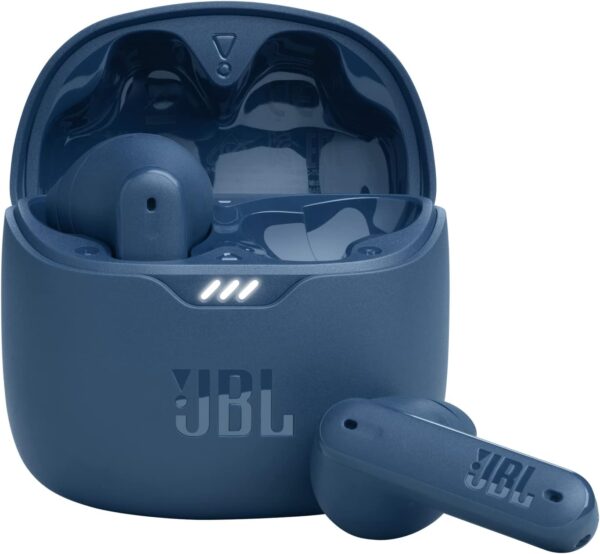Your cart is currently empty!
The Rise of Smart Anti-Lock Braking Systems
Discover how smart Anti-Lock Braking Systems revolutionize vehicle safety and performance with advanced sensors, predictive capabilities, and seamless integration. Learn more now!
Description
In recent years, you’ve probably noticed how technology keeps reshaping our everyday experiences, especially on the road. One of the most fascinating advancements is the rise of smart Anti-Lock Braking Systems (ABS). These intelligent systems not only help prevent skidding and maintain control during sudden stops, but they also integrate seamlessly with other vehicle technologies to enhance your overall driving safety and comfort. Treating yourself to a deep dive into how these smart systems work can reveal just how much they’ve revolutionized modern driving.
The Rise of Smart Anti-Lock Braking Systems
In recent years, the automotive industry has seen a significant transformation with the advent of smart technology. One of the standout advancements in vehicle safety is the smart Anti-Lock Braking System (ABS). These systems not only enhance traditional ABS but also incorporate advanced technologies to optimize braking efficiency, improve vehicle control, and ensure overall safety on the roads.
What are Smart Anti-Lock Braking Systems?
Smart Anti-Lock Braking Systems are an evolved form of traditional ABS. They integrate sensors, computing power, and advanced algorithms to provide superior braking performance. The aim is to prevent wheel lock-up, maintain traction, and offer better control in various driving conditions, including wet, icy, or uneven surfaces.
How Do Traditional ABS Work?
To understand smart ABS, it helps to review how traditional ABS function. ABS detects when a wheel is about to lock up during braking. Using sensors, it modulates brake pressure to each wheel independently, ensuring that wheels continue to rotate rather than skidding. This helps maintain steering control and reduces braking distances on slippery surfaces.

Key Features of Smart Anti-Lock Braking Systems
Smart ABS build upon the traditional functionality but add several advanced features:
- Enhanced Sensor Capabilities: Modern sensors provide real-time data about wheel speed, road conditions, and vehicle dynamics.
- Microprocessors and Algorithms: Advanced computing power enables these systems to analyze data quickly and make accurate adjustments to brake pressure.
- Integration with Other Systems: Smart ABS often work in tandem with other vehicle safety systems, including Electronic Stability Control (ESC) and traction control.
Benefits of Smart Anti-Lock Braking Systems
The rise of smart ABS offers several compelling benefits:
- Improved Braking Efficiency: By optimizing brake pressure, smart ABS can reduce stopping distances even further compared to traditional systems.
- Enhanced Driver Control: Maintaining better traction and steering control allows drivers to navigate safely through difficult conditions.
- Road Condition Adaptability: Whether you’re driving on wet roads or icy surfaces, smart ABS adjust their functionality to match the environment.
- Predictive Capabilities: Some systems can predict potential hazards and prepare the brakes accordingly, giving you an added layer of safety.

How Smart ABS Enhance Vehicle Performance
Incorporating smart ABS into a vehicle contributes to overall performance by:
- Reducing Wear and Tear: Optimized braking means less strain on brake components, potentially extending their lifespan.
- Fuel Efficiency: Efficient braking can contribute to overall fuel savings as less energy is wasted in aggressive braking scenarios.
- Advanced Diagnostics: Many smart ABS can diagnose issues in real-time, providing alerts and maintenance reminders to ensure peak performance.
- Seamless Integration: These systems often work without noticeable intervention, making for a smoother, more comfortable driving experience.
Challenges and Considerations
While smart ABS offer many advantages, there are some challenges to consider:
- Cost: Advanced systems can be more expensive to develop and maintain.
- Complexity: High-tech systems require specialized knowledge for repairs and maintenance.
- Reliability Concerns: As with any technology, there’s a potential for glitches or failures, though these are increasingly rare.
Future of Smart Anti-Lock Braking Systems
The future of smart ABS looks promising. With ongoing advancements in AI, machine learning, and sensor technologies, these systems will likely become even more sophisticated. Here are some trends to watch for:
- Vehicle-to-Vehicle Communication: Future systems may incorporate communication technology to share data between vehicles, improving overall traffic safety.
- Enhanced AI Integration: Artificial intelligence could enable even smarter, predictive braking systems that continuously learn and adapt to driving conditions.
- Autonomous Vehicles: As autonomous driving technology advances, smart ABS will play a critical role in ensuring the safety of self-driving cars.
Comparison Between Traditional ABS and Smart ABS
| Feature | Traditional ABS | Smart ABS |
|---|---|---|
| Sensor Technology | Basic wheel speed sensors | Advanced multi-parameter sensors |
| Data Processing | Limited computing power | High-speed microprocessors |
| Road Condition Adaptability | Limited | Enhanced, real-time analysis |
| Integration with Other Systems | Minimal | Extensive (ESC, traction control) |
| Predictive Capabilities | None | Available in some systems |
| Maintenance and Diagnostics | Basic | Advanced, real-time monitoring |
Final Thoughts
Smart Anti-Lock Braking Systems represent a leap forward in automotive safety and performance. By integrating advanced sensors, computing power, and predictive capabilities, these systems offer substantial benefits over traditional ABS. As the technology continues to evolve, it has the potential to make our roads safer and our driving experiences more enjoyable.
Your Thoughts
What are your experiences with smart Anti-Lock Braking Systems? Have you noticed a difference in your vehicle’s performance and safety? Share your thoughts and let’s get a discussion rolling!








